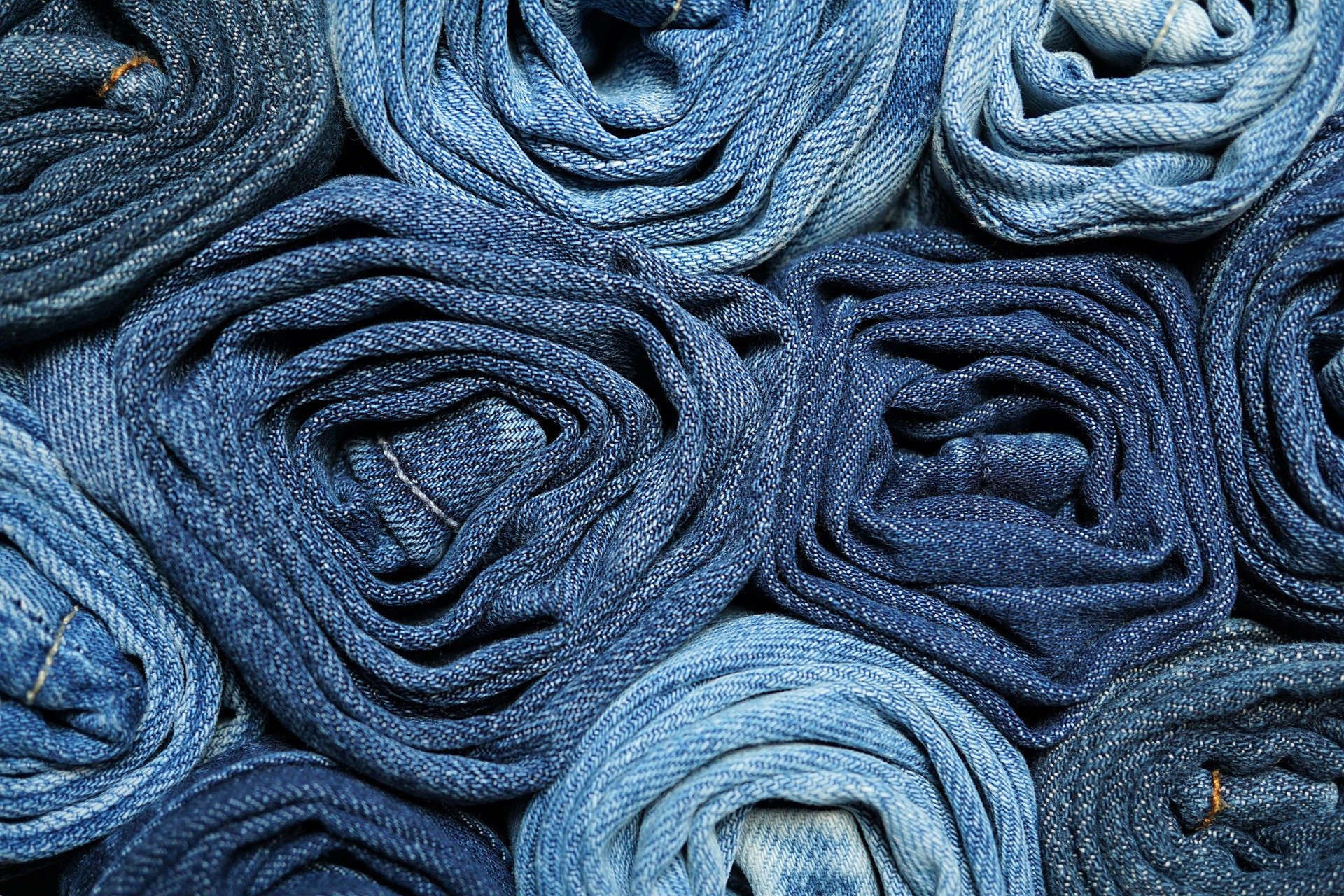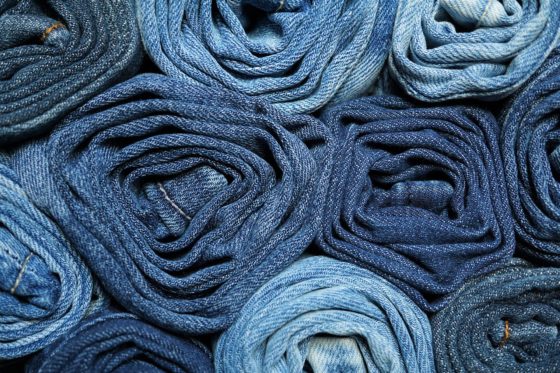Blue jeans just got greener: Dutch ‘Denim Deal’ sets industry standard for sustainability


Denim, we’re told, originated in the south of France, but today it’s the Netherlands that wears the trousers with a thriving jean industry employing cutting-edge techniques. G Star RAW are headquartered here, as are Kings of Indigo, Kuyichi, Denham, Mud Jeans and Amsterdenim. The Dutch preference for casual, practical clothing sees 20 million pairs of jeans sold each year, but when they are no longer wanted, most are burnt or sent to landfill.
On Thursday a number of leading jeans makers and other stakeholders were in Amsterdam, the self-styled capital of denim, to sign a new agreement pledging to work together to improve sustainability in the jeans industry and make recycling the new norm.
The signatories have agreed to collaborate on finding sustainable solutions to close the production loop. In particular, they have committed to using a minimum of 5% recycled content in every pair of jeans and create at least one million jeans with 20% post-consumer recycled (PCR) content.
The coming together of large, well-established fashion houses such as Scotch & Soda with newcomers with strong sustainability profiles such as Mud Jeans is mutually beneficial.
‘We’ve had the opportunities to have discussions with other brands who might be further down the path than we are, who are already maybe completely sustainable,’ said Imogen Nulty, Scotch & Soda’s creative design manager for denim. For many, the transparency of the collaboration has been refreshing. ‘It’s not felt like a competition, but an inspiring opportunity,’ she said.
Despite its durability, denim has a dark side due to its environmentally harmful production processes. Thirsty cotton cultivation and specialist dyeing and finishing techniques mean that an estimated 7,500 litres of water is needed to make one pair of jeans, while the pollution caused by denim’s famous indigo dye, which inspired the award-winning documentary The River Blue (2016), threatens communities in developing countries who already have a shortage of clean water.
Acknowledging the ‘love affair between Amsterdam and denim’, Amsterdam’s circular economy chief Marieke van Doorninck pointed to the flip side of our jean fetish. ‘We are a city that loves fashion, but we are also very much aware of the fact that fashion can be very polluting and very unfair towards the workers,’ she told the press conference.
‘There needs to be something done and, because we are ‘denim city’, we feel responsible to work on that – and because we also have the talent.’ Stakeholders must ‘make sure that circular denim is not a niche product,’ she said. ‘Today is only a starting point.’
Paris
According to the Paris Climate Agreement, the Dutch economy must be fully circular by 2050, and halfway there by 2030. Junior environment minister Stientje van Veldhoven, who has said in the past that clothing manufacturers must be fully responsible for the waste they create, said she ‘acknowledged that it is as difficult for [fashion firms] as it was for the energy sectors to make those changes’.
Van Veldhoven emphasised the significance of the occasion. ‘I am very, very pleased with this Denim Deal. I think it is a great step,’ she said, adding that she would be asking the ministry about supporting circular production in fashion to help meet carbon targets.
But she stressed the importance of setting these standards far beyond the Netherlands. ‘I very much like the ambition to start making sure that this doesn’t just become an Amsterdam Denim Deal, but a worldwide Denim Deal… We are in this together and we need partners all around the world,’ she said. ‘Let’s see how we can join up and scale up.’
The first Denim Deal summit will be held in Amsterdam on 4 February 2021.
Thank you for donating to DutchNews.nl.
We could not provide the Dutch News service, and keep it free of charge, without the generous support of our readers. Your donations allow us to report on issues you tell us matter, and provide you with a summary of the most important Dutch news each day.
Make a donation